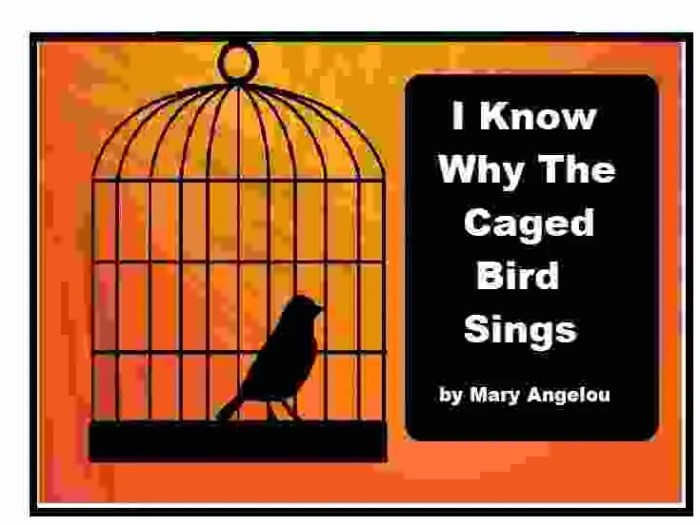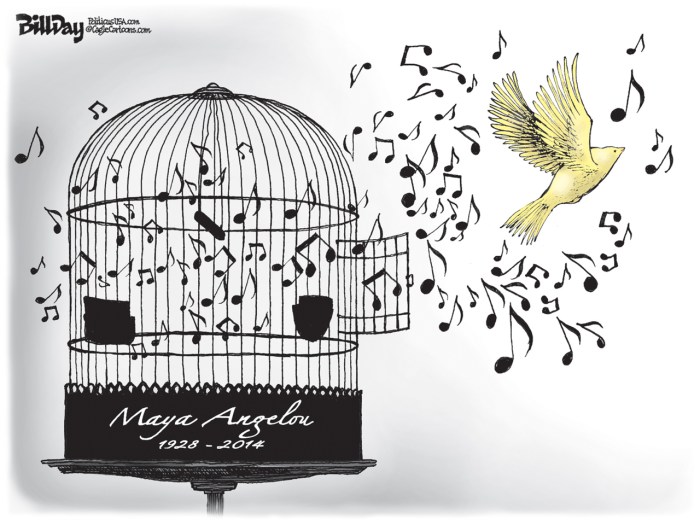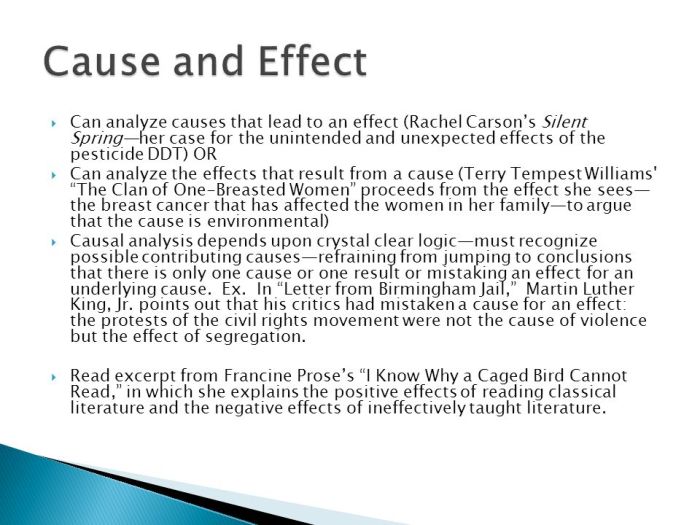i know why the caged bird cannot read fallacies embarks on an enlightening journey, unraveling the intricate tapestry of logical fallacies that have ensnared the understanding of the caged bird’s inability to read. This captivating narrative delves into the complexities of composition, equivocation, oversimplification, confirmation bias, and hasty generalization, shedding light on the subtle yet profound ways in which these fallacies can distort our perception of reality.
As we delve into the heart of this discourse, we will uncover the flawed assumptions and misinterpretations that have perpetuated the misconception that the caged bird’s confinement is the sole determinant of its illiteracy. Through a meticulous examination of each fallacy, we will illuminate the path towards a more nuanced and accurate understanding of this complex issue.
Fallacies in Understanding Why the Caged Bird Cannot Read: I Know Why The Caged Bird Cannot Read Fallacies

The assumption that the caged bird cannot read is often based on several fallacies, which are logical errors that lead to invalid conclusions. These fallacies hinder a comprehensive understanding of the complex factors contributing to the bird’s illiteracy.
Fallacy of Composition
The fallacy of composition occurs when we assume that the properties of the individual parts of a group are necessarily true for the group as a whole. In the case of the caged bird, this fallacy manifests in the belief that because the bird is confined, it cannot read.
However, this assumption overlooks the fact that reading ability is not solely dependent on physical freedom but involves a complex interplay of cognitive, social, and environmental factors.
For instance, while the bird’s confinement may limit its access to educational resources, it does not preclude the possibility of the bird acquiring literacy through other means, such as auditory learning or observation.
Fallacy of Equivocation
The fallacy of equivocation arises when a term is used with different meanings in the same argument. In the context of the caged bird, the term “read” is often used ambiguously. It can refer to the act of decoding written symbols or to the broader concept of understanding and comprehending written language.
The ambiguity of the term “read” contributes to the misconception that the caged bird cannot read. By conflating the two meanings, the argument assumes that the bird’s inability to decode written symbols implies an inability to comprehend written language, which is not necessarily true.
Fallacy of Oversimplification
The fallacy of oversimplification occurs when a complex issue is reduced to a single cause or explanation. In the case of the caged bird’s illiteracy, this fallacy manifests in the belief that confinement is the sole reason for the bird’s inability to read.
However, literacy is a multifaceted skill influenced by various factors, including social, economic, and environmental conditions. For instance, the bird’s lack of access to educational opportunities, limited exposure to language, and potential cognitive impairments may also contribute to its illiteracy.
Fallacy of Confirmation Bias
Confirmation bias refers to the tendency to seek information that confirms our existing beliefs. In the context of the caged bird, this bias may lead people to selectively focus on evidence that supports the notion that the bird cannot read, while ignoring or downplaying evidence that contradicts this belief.
Confirmation bias can hinder our ability to objectively assess the bird’s situation and consider alternative explanations for its illiteracy. It is crucial to consider diverse perspectives and evidence to avoid falling prey to this bias.
Fallacy of Hasty Generalization, I know why the caged bird cannot read fallacies
The fallacy of hasty generalization occurs when we make a general conclusion based on limited or unrepresentative data. In the case of the caged bird, this fallacy may arise from observations of a few birds that cannot read, leading to the assumption that all caged birds are illiterate.
However, such a generalization is hasty and inaccurate. It fails to account for the wide range of factors that can affect a bird’s ability to read and ignores the possibility that some caged birds may be able to read.
FAQ Overview
What is the fallacy of composition?
The fallacy of composition assumes that what is true for the parts is also true for the whole. In the case of the caged bird, this fallacy leads to the mistaken belief that because individual caged birds cannot read, all caged birds must be illiterate.
How does the fallacy of equivocation contribute to the misconception that the caged bird cannot read?
The fallacy of equivocation occurs when a word or phrase is used with different meanings in the same argument. In the context of the caged bird, the term “read” is often used ambiguously, leading to confusion about the bird’s actual literacy skills.
Why is it important to avoid confirmation bias when considering the caged bird’s ability to read?
Confirmation bias can lead us to selectively seek information that confirms our existing beliefs, even if that information is inaccurate or incomplete. In the case of the caged bird, confirmation bias can prevent us from considering evidence that suggests the bird may be able to read.


